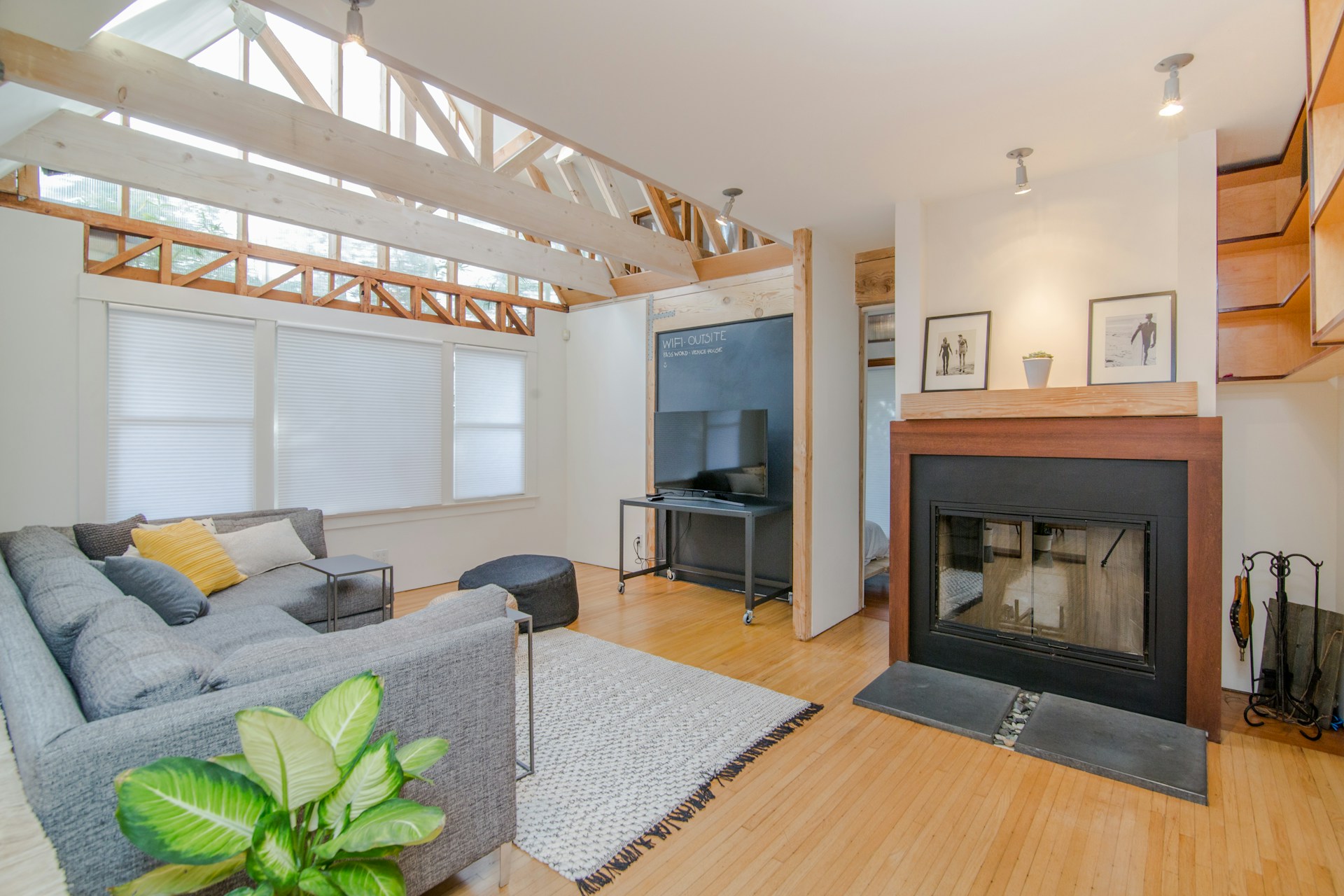Sri lanka for digital nomads: A comprehensive guide
Dare to be a digital nomad in Sri Lanka, an under-the-radar destination. Live a unique spiritual and professional experience at a low cost.
Hello traveller! Have you ever thought of Sri Lanka as a destination to live as a digital nomad? Probably not, but that’s why your friends at Holafly are here to tell you why being a digital nomad in Sri Lanka is a great idea and, of course, everything you need to do to visit “the island of a thousand names” soon.
Sri Lanka isn’t among the nomads’ favourite destinations as much as Thailand, Bali or Chiang Mai. However, we can assure you that this country is a cultural and spiritual experience like no other.
Don’t wait any longer! Dive into this guide to help you prepare for your trip, plan your budget, learn about visas, and understand taxes to live legally while enjoying this country in the heart of the Indian Ocean.
Why choose Sri Lanka to live as a digital nomad?
You’ll be asking this question repeatedly, and we’ll answer it. Being a digital nomad in Sri Lanka is an immersive adventure in a country with Buddhist, Hindu, Portuguese, Dutch, and British influences. With a low cost of living, it’s an attractive option for curious travellers on a budget. So, let’s get on with the right reasons for you to fall in love with this destination.
Connection with nature and exotic culture
Sri Lanka is a unique combination of natural beauty and cultural richness. The beaches of Mirissa and Unawatuna, mountains such as Ella and sacred temples offer an opportunity to explore, relax and wonder after a day’s work. In addition, its cultural diversity is reflected in its architecture, festivals and gastronomy. An authentic immersion while working in an inspiring environment, don’t you think?
Growing infrastructure for digital nomads
Sri Lanka is quickly gaining attention from digital nomads due to its rapid infrastructure adaptation for remote workers. In major cities like Colombo and Mirissa, co-working spaces have emerged to meet digital nomads’ needs, offering stable connectivity and productive environments. In urban and tourist areas, internet speed is acceptable for most work activities. This continuous improvement strengthens the country’s capacity to attract more remote workers each year.
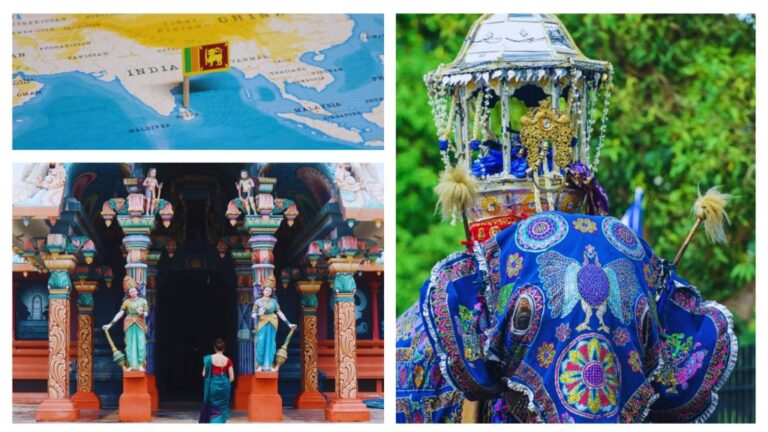
Flexibility to live and work
The Sri Lankan government is working to facilitate the entry of digital nomads. Currently, the ETA (Electronic Travel Authorisation) allows a one-month stay for those wishing to explore the country before making a long-term commitment. Moreover, the digital nomad visa in Sri Lanka is under development, to offer even more stability and benefits for remote workers.
Growing international community
Sri Lanka is emerging as a meeting point for digital nomads from all over the world. According to the Trading Economics portal, tourism in Sri Lanka increased by more than 24% by October 2024, and the figure is rising. In cities like Colombo and Mirissa, an active international community is forming, promoting collaboration, cultural exchange, and networking. Co-working spaces organize events and workshops that help digital nomads integrate, seize professional opportunities, and enjoy a relaxed tropical lifestyle.
Visas allowing legal residence in Sri Lanka
The digital nomad visa in Sri Lanka was approved by the government in 2021, but hasn’t yet entered into force. The Electronic Travel Authorisation (ETA) is the most popular option for travellers, which allows an initial stay of 30 days and can be extended up to a maximum of 270 days. Extensions can be applied for online or at local immigration offices.
For those seeking longer stays, Sri Lanka allows switching from the ETA to other visa types, like work or residency visas, depending on individual circumstances and legal requirements.
Where to live and work as a digital nomad in Sri Lanka?
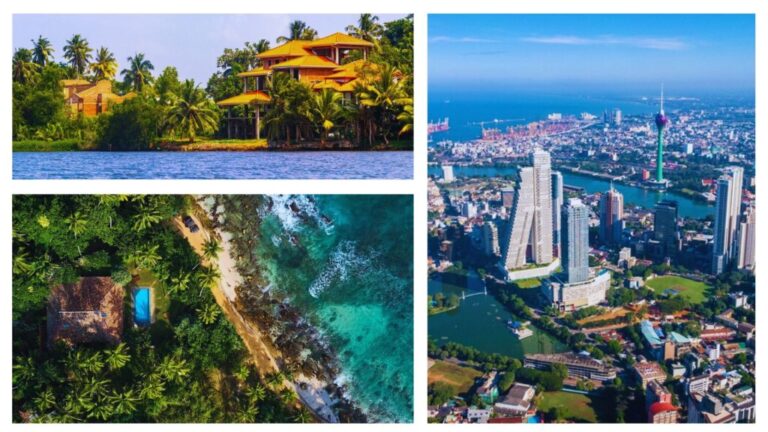
Colombo: The urban and commercial centre
As the capital of Sri Lanka, Colombo is the city with the best technology infrastructure and a growing number of co-working spaces. Here you’ll find stable internet connectivity, modern hotels and plenty of night-life. It’s the hub for networking, thanks to its international community of remote workers and tech events.
Mirissa: Nomadic lifestyle on the seafront
For those who prefer coastal tranquillity, Mirissa is an excellent choice. This small fishing village is famous for its paradisical beaches. It’s perfect if you enjoy working with ocean views and activities like surfing or whale watching; here, you can relax or find inspiration. The digital infrastructure isn’t as robust as in Colombo, but there are many cafés and local spaces with reliable Wi-Fi.
Kandy: Nature and culture
Located in the heart of the island, Kandy combines history, culture and green landscapes. This destination is for you if you want to live in a quiet but well-connected place. In addition to its cultural significance as the site of the Temple of the Tooth Buddha kandy has a cool climate and access to nature reserves. Some boutique hotels and guesthouses have started offering remote workspaces tailored to the needs of digital nomads.
Ella: Paradise in the mountains
Situated in the mountainous region,Ella is the place to be for those who love an environment surrounded by spectacular scenery. Known for its tea plantations and trails such as Little Adam’s Peak Little Adam’s Peak, the town attracts nomads interested in outdoor activities. Although connectivity can be a challenge in some areas, accommodations in Ella typically offer reliable internet and unparalleled views.
Galle: History and modernity
The city of Galle, famous for its colonial fort and European architecture, is a unique option for digital nomads. It combines the tranquillity of the coast with an interesting history. Its proximity to other coastal towns such as Unawatuna also offers the possibility to explore different beaches. Galle has co-working spaces and internet cafés, as well as an artistic and creative environment.
Accommodation options in Sri Lanka
Co-living spaces
1. Colive Ahangama
Located on the southern coast of Sri Lanka, at Colive Ahangama you’ll have access to activities such as surfing and yoga. It features private rooms, a well-equipped shared kitchen, an outdoor swimming pool and communal areas for socialising or working. It also provides services such as high-speed internet and regular cleaning. Prices start at around $50 per night, with discounts for longer stays depending on the season.
2. Nomads Colive Koggala
This space in Koggala specialises in catering to digital nomads with modern rooms, an on-site co-working space and stunning ocean views. Nomads Colive offers services such as fibre optic internet, workshops and networking events for its residents. Prices typically start at around $45 per night, with weekly and monthly packages available.
3. NETS Cowork & Colive
It’s a newly opened co-living and co-working located only 5 minutes from Ahangama beach. Its design is boutique in aesthetic, with a tranquil garden oasis with modern comforts for digital nomads. Key services include a large co-working area, a pool, a café, a rooftop bar with sea views, and a meditation balcony. This Sri Lanka accommodation is available at prices starting from $113 per night for private rooms.
If you only want the co-working service you can choose between several passes:
- Daily: $11
- Weekly: $65
- Monthly: $176
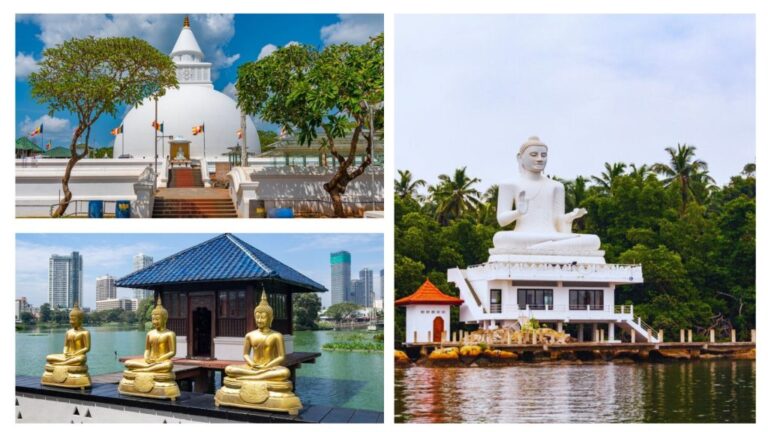
Hotels
- Jetwing Colombo Seven: This Colombo hotel has rooms equipped with desks, stable Wi-fi and quiet common areas.
Price: From $80 per night. - Mango House Galle: In the historic town of Galle, this boutique hotel offers a tranquil setting with gardens and common areas to work in.
Price: From $60 per night.
Exchange houses and long-term rentals
1. Homes on Airbnb in Ella
You can find fully furnished private homes with mountain views from $300 a month.
2. Local exchange houses
Some residents offer exchanges for short-term stays. These options are cheaper, with costs starting at $150 per month for simple tasks.
Co-working spaces in Sri Lanka
1. Hatch Co-working Space
One of the most comprehensive locations in Colombo with private offices, shared desks, high-speed Wi-fi and on-site cafeteria. Fees range from $10 per day to $100 per month for memberships.
2. Focus Hub Co-Working & Cafe Ahangama
This popular co-working space in Sri Lanka offers a relaxing environment with healthy food and reliable Wi-Fi. It has comfortable seating, a private meeting room and power back-up. Ideal for both work and leisure, it offers a quiet environment for remote workers. Prices start at around $5-10 per day, also with long-term rates.
Internet in Sri Lanka
In Sri Lanka, internet quality can be slower or inconsistent in rural and remote areas outside the main cities and tourist areas. Some more remote regions, such as mountainous areas or areas close to the southern border, may experience a weaker connection.
In these areas, digital nomads can rely on 4G mobile services, which have lower internet speeds compared to the 5G fiber optic connections available in cities like Colombo, Ahangama, and Mirissa, offering speeds of up to 100Mbps.
Don’t compromise your productivity for lack of connection. With Holafly, you get fast and secure internet in over 200 destinations. Activate your unlimited data eSIM and continue working without interruption while living in Sri Lanka!

Taxes for digital nomads in Sri Lanka
Digital nomads who spend more than 183 days in Sri Lanka may be considered tax residents and are therefore subject to local taxation. Additionally, some digital nomads may be exempt from taxes in Sri Lanka if their country has a double taxation treaty with the country.
Sri Lanka has agreements with countries such as India, the UK, Canada, and the Netherlands, which help to avoid double taxation. It’s advisable to consult a tax expert for specific details on how the agreements affect taxation.
Insurance and medical service in Sri Lanka
Sri Lanka’s healthcare system includes both public and private options, with private options being of higher quality, especially in Colombo. For your safety and better healthcare coverage in Sri Lanka, as a digital nomad, we recommend getting international health insurance, such as World Nomads or SafetyWing, which cover medical emergencies and other expenses in Sri Lanka and other countries.
Daily living expenses in Sri Lanka as a digital nomad
Transport and mobility
In Sri Lanka, digital nomads have several options for getting around. If you want to drive, you can use a foreign driver’s license for up to three months, after which you need to obtain a local driver’s license.
In terms of public transport, Sri Lanka has a fairly inexpensive network of trains, buses and taxis in the major cities. Trains are a popular way of getting between cities, with fares ranging from $0.50 to $3.00. City and long-distance buses are very cheap, with fares ranging from $0.25 to $2. If you prefer a more convenient option, you can opt for taxis or car-sharing services such as Uberwhich range in price from $3 to $15, depending on the distance travelled.
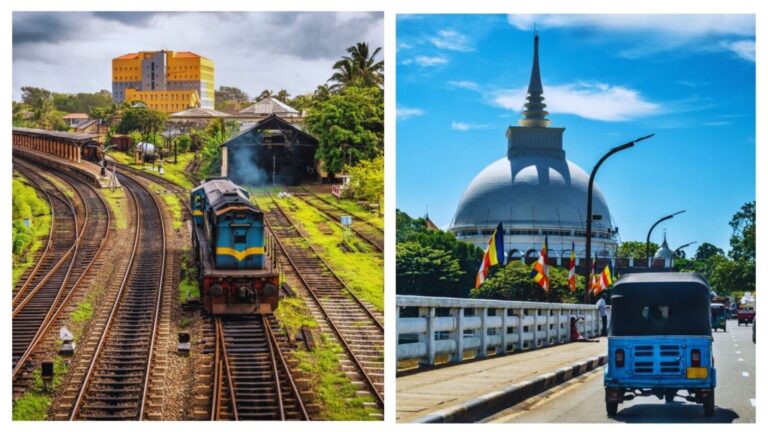
Financial management
In Sri Lanka, digital nomads can easily access banking services. The most recommended banks for foreigners are HSBC, Standard Chartered and Commercial Bank, which have international bank account and card options. There are also several digital banks and fintech platforms like Wise or N26 that allow for more flexible financial management abroad.
ATMs are available in major cities, but keep in mind international transaction fees, which can cost around $3 to $5 per withdrawal, depending on the bank.
Food costs
In Sri Lanka, digital nomads can enjoy a wide variety of dining options, from local markets to more touristy restaurants. Common supermarkets include Keells and Cargills, where staples such as rice, vegetables and fruit can be found at fairly affordable prices. A monthly grocery bill for one person can cost between $100 and $150, depending on your consumption.
On the other hand, eating at local markets or simple restaurants is very affordable, with dishes ranging from $2 to $6, and in more touristy restaurants, a full meal can cost between $8 and $15.
Entertainment and leisure in Sri Lanka
It’s impossible to get bored because there is always what to see in Sri Lanka. This destination is a blend of history, nature, and cultures, where every corner has a story to tell and an amazing experience to live. From water sports in Mirissa or Unawatuna, to trekking (hiking) on Adam’s Mountain or on the plains of Nuwara Eliya, there’s something for everyone.
Don’t leave Sri Lanka without visiting the Temple of the Tooth Buddha (Sri Dalada Maligawaen) in Kandy, the great Sigiriya archaeological site or the annual Perahera festival with its traditional parades and dances.
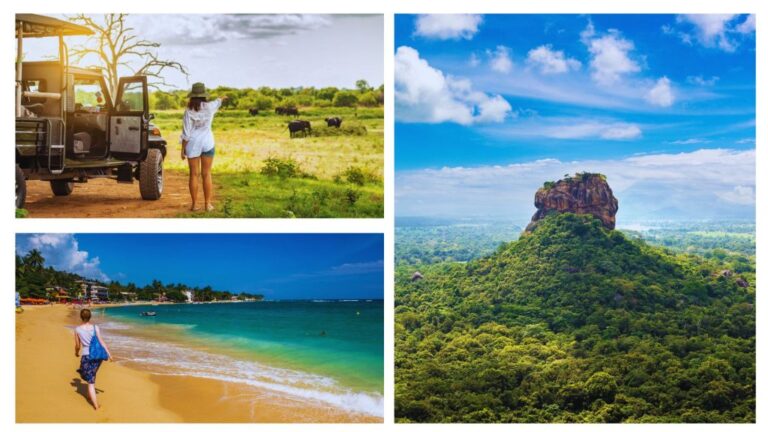
Important: If you are a frequent traveler and want to stay connected without worrying about expensive roaming or looking for a new SIM at every destination, Holafly’s subscription plans are for you. With a single eSIM, enjoy internet in more than 170 countries for a fixed price and no surprises on your bill. travel without limits and connect easily and securely! 🚀🌍

Best seasons to stay in Sri Lanka
Sri Lanka has a tropical climate, so the choice of season will depend on the region you plan to visit. The southern and western coasts are best during the dry months, while the mountains stay cool and appealing year-round.
| Region/season | Climate | Best months | Advice |
| South and West Coast | Warm, dry climate, ideal for beaches | December – April | Wear light clothing, sunscreen, insect repellent |
| Mountain areas (Kandy, Nuwara Eliya) | Cool weather, occasional showers | June – September | Wear a light jacket, comfortable clothes for trekking. |
| Monsoon season | Rainfall, humid climate | May – October | Best to avoid areas with more intense rainfall. |
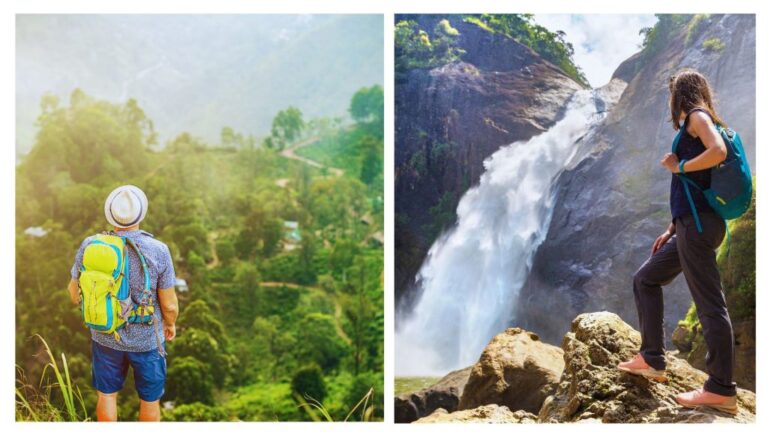
Cost of living as a digital nomad in Sri Lanka
The cost of living in Sri Lanka is very affordable compared to countries like Bali or Thailand. With a modest budget, you can enjoy a comfortable lifestyle that covers accommodation, food, transportation, and entertainment.
| Category | Price range |
| Accommodation (monthly) | $150 – 600. |
| Co-working spaces | $100 – 300. |
| Food (markets and restaurants local) | $2-5 per meal.$100-150/ month. |
| Transport (public and taxi) | $0.25-15 per trip. |
| Leisure and activities | $10-30 per activity. |
| Total monthly budget | $800 – 1,200. |
If you’re ready to unlock your next office destination, remember to take Holafly with you wherever you go. Secure your connection with the eSIM data in Sri Lanka and stay in touch with family and colleagues.
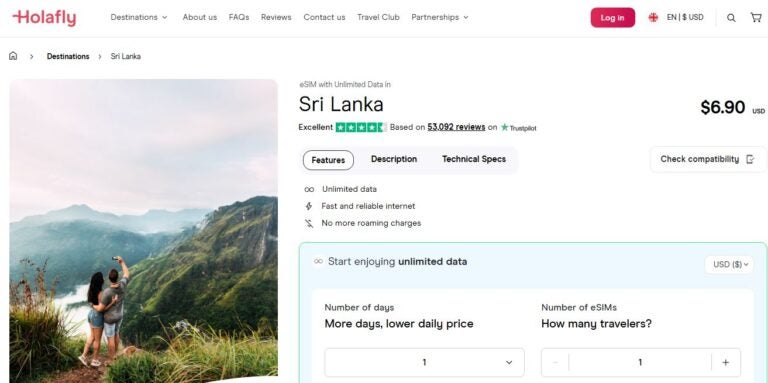





 Language
Language 


















 No results found
No results found






